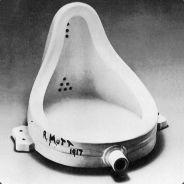Anno: "I don't hate Star Trek, but I'm not impressed by it. You can see the arrogance of America in it. It's a story of influencing or enlightening native peoples of destination planets, that features romance with their most admirable woman in a front-line way. I feel like this is American imperialism itself.
It's like Marxists are portrayed as being primitives. I can't get used to that kind of American worldview. I think the Enterprise is cool, but that's all."
庵野: 『スタートレック』は嫌いじゃないですけど、そんなにはまってはいないんです。なんかアメリカ人の傲慢さが見えててね。行く先の星々の原住民を感化していくというか啓蒙していく話や、最前線の基地では、そこの一番偉い女性とロマンスがある。もう、アメリカの帝国主義そのものという気がしてね。なんかこうマルクス主義の人たちが、原始的なものとして描かれてますよね。ああいうアメリカ的な世界観というのには、どうもなじめなくて。エンタープライズ号は、カッコいいと思うんですけどね。」


I always feel like I glean as much meaning from those "linking flourishes" as the specific words used. I take なんです as kind of a softened version of the explanatory の (compare the feminine なの), and ですよ is pretty easygoing overall (not that these are really "words" that people think about). So I take きらいなんですよ as almost "I just hate it, you know?" It's certainly not diplomatic, but it's not scandalous either.
大嫌い is pretty much 嫌い with an intensifier, so yeah "fucking hate" instead of "hate." (And putting it that way makes me wonder if anyone's tried to say 超嫌い or 極嫌い seriously in a fight, and how hard their opponent laughed at them when they did.)
EDIT: Maybe the thing that makes me feel this way is that 嫌い, although it means "hate", is an adjective. So although the translation has Miyazaki just piping up with "I dislike western civilization," in context it's more like he's (slightly facetiously) offering an explanatory addendum to what Oomori said. Evangelion is more along the lines of western civilization, and of course western civilization is hateful/distasteful/(non-existent-English-adjective-stronger-and-more-personal-than-"distasteful")---you can't trust it.